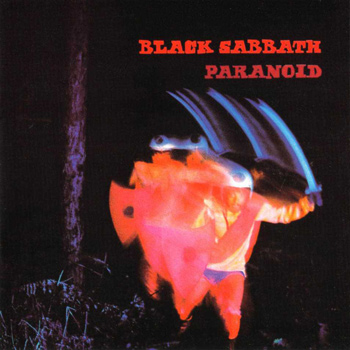In June of 1970, just four months after Black Sabbath released their self-titled debut album, guitarist Tony Iommi, drummer Bill Ward, bassist Terry “Geezer” Butler, and singer Ozzy Osbourne gathered in the studio to record Paranoid, the album Time Magazine calls “the birthplace of heavy metal. This dynamic collection of songs, which include “Iron Man,” “Paranoid,” and “War Pigs” have gone on to influence bands such as Metallica, Megadeth, Iron Maiden, Slayer, etc, but how much do you really know about this album or the band itself? If you haven’t seen Classic Album’s documentary on it then your knowledge base is missing a vital part of the equation. On this wonderfully crafted special, distributed by Eagle Rock Entertainment, we learn the most intricate details about the album’s construction through candid interviews with the artists themselves, as well as music journalists, engineers, and other insiders such as Henry Rollins. “You drive up to a house party on a winter night, when it’s too cold to stand outside,  they’re the four guys standing outside the house on the front porch drinking cold beer because either they can’t get into the party or they don’t want to be in the party,”Rollins eloquently describes during his interview. “Those are your Black Sabbath fans. Lonely stoners. The ones who congregate and party in the woods.” I’m sure he’s talking from experience.
they’re the four guys standing outside the house on the front porch drinking cold beer because either they can’t get into the party or they don’t want to be in the party,”Rollins eloquently describes during his interview. “Those are your Black Sabbath fans. Lonely stoners. The ones who congregate and party in the woods.” I’m sure he’s talking from experience.
When we’re not being told how Black Sabbath was considered the “Milton” of rock music we get to see Tony Iommi, Bill Ward, Geezer Butler, and album engineer Tony Allom use a four screen split to demonstrate the importance of a powerful rhythm section on “Electric Funeral,” a song consumed by apocalyptic themes about society’s demise during and after war. Tony Iommi also discusses the “string bending” technique he used to create that famous drone which opens “Iron Man,” a riff used on television shows like Beavis and Butthead, and most recently during the commercials for both Iron Man movies. Another fascinating aspect of Paranoid we learn in this documentary is that the album was basically written on the road between gigs, practiced throughout soundchecks, and performed on stage disguised as jam sessions. And despite its success in both the US and UK markets critics of the day panned the album. Paranoid broke into the US top ten in March of 1971, and went on to sell four million copies.
Besides Ozzy being coherent during his interviews there is one part of this documentary that caught me by complete surprise. Phil Alexander of Mojo & Kerrang! called Black Sabbath one of the five rock bands that influenced British rock in America. The other four he mentioned were The Who, Led Zeppelin, The Beatles, and The Rolling Stones. As much as I love all those bands it is impossible to say that only five bands shaped the way Americans listen to British rock. Ever heard of Pink Floyd and Cream? Besides Mr. Alexander’s goofy statement Classic Albums does Black Sabbath real justice with this documentary, and the crowds that pack Ozzfest every year prove Sabbath’s relevance to the world of rock.
“There’s just something about that whole record that, when you’re a kid and you’re turned onto it, it’s like a whole different world. It just opens up your mind to another dimension…Paranoid is the whole Sabbath experience; very indicative of what Sabbath meant at the time.”
